No, killing is still wrong
Why we should teach To Kill a Mockingbird in high schools: A student response to Mr. Zac Chase, author of “I bet killing a mockingbird wouldn’t be so bad”
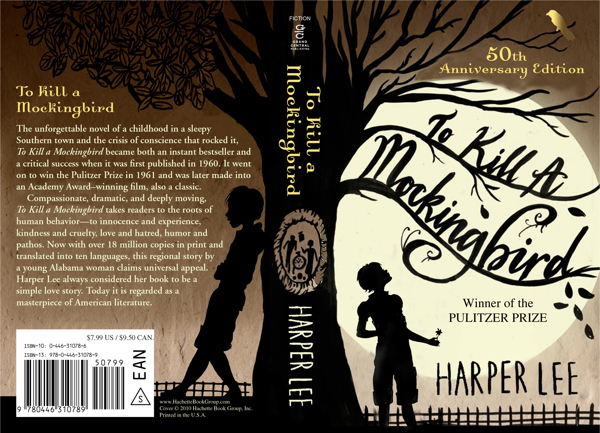
A copy of the 50th anniversary edition of To Kill a Mockingbird.
*Note: to appreciate the following article, it would help to read the original article about why schools ought not to teach To Kill a Mockingbird written by SVVSD Language Arts coordinator Zac Chase.
To Kill a Mockingbird (TKAM) is an incredibly important piece in the America story, with timeless lessons and important historical significance; not teaching it would do an injustice to everyone involved. In this rebuttal, I will demonstrate how the arguments put forward by Mr. Zac Chase (in the above mentioned article) are flawed and why TKAM should still be taught in schools today.
There is a strong argument in his article that TKAM can be harmful to non-Caucasian students, and that the book implies that injustices can only be fought by the educated white man. In his article, Chase questions the text by asking what are its true lessons, and he concludes that it is, “Passivity. Respect for the educated white man.”
However, it’s not a praise of the educated white man, but rather a scolding of the white man that has hate in his heart. The book is written of the time where it was harder for a black man, or man of any other minority to fight racism, so a white man did have to help them. But the theme of the book isn’t about that. It is not insinuated that all minorities are helpless and need defending but quite the opposite. Let’s look at Atticus’s speech from the book. In Atticus’s closing argument, he references Thomas Jefferson’s famous quote, “All men are created equal,” and states that, “some Negroes lie, some Negroes are immoral, some Negro men are not to be trusted around women—black or white. But this is a truth that applies to the human race.” The speech, which has been considered one of the greatest pieces of fiction in it of itself, is advocating for the equality of men, not the harmless and helplessness of minorities.
Chase’s article also appears to be based on another article written by Julia Franks where she argues that the message of the book is demeaning and degrades marginalized groups. After reading this article, however, I am baffled. The entire piece Chase references seems to be hinged on a false understanding of TKAM.
The problem is the interpretation of the message of the book. In her article she says “…they’re like songbirds in what they do ‘for us.’” She thinks the theme is that we shouldn’t punish those people because of what they do for us. But that is not the message most readers receive from the book. The message received is that we shouldn’t punish/alienate those people because they make the world a better place and aren’t harming anyone. Her interpretation of the message seems to be taking it too literally. The book is a condemnation of racism (as shown prior from Atticus’ speech) that states that we shouldn’t alienate those people of repressed groups because of all of the good they have the potential to put into the world, not because of what they can do for us.
Chase references in his piece that non Caucasian students would have the possibility to feel alienated by this book; however, I would like to bring personal experience from my reading of the book to challenge this notion. I am a half-White and half-Mexican student. I have spent much of my life with Mexican culture. I’ve seen discrimination from police for being Mexican, and from my extended family for being white. I’ve been called words like “beaner”, and at the same time been called not an “all Mexican”. For all intents and purposes, I am a member of one of the marginalized groups Mr. Chase referenced. And I did not feel offended or alienated by this book. This book left me with a feeling of hope. Hope that good people exist everywhere in the world. Hope that the message of the book would be heard and that the world would change for the better.
It has been fifty years after the book was first released and the book’s message still resonates with a large group of people. Its message still holds true: that all people are created equal. And, if this book can give hope to me, think about how much it can give to other students, especially others of marginalized groups who have also felt racism or any other discrimination.
Chase also makes it very clear that TKAM is outdated, and as a result, there is not much to gain from an old book. If that is the case, however, then why do teachers still teach The Great Gatsby? Of Mice and Men? Romeo and Juliet?
Of Mice and Men demonstrates the struggle of humans trying to find their identity facing a mountain of resistance; Romeo and Juliet teaches the nature of humans and how our nature can ultimately be our undoing; The Great Gatsby is not just a story about the tragedy of the American dream, but a story about the tragedy of a broken heart. Just because a book is old doesn’t mean there isn’t anything to be gained from it. Messages can be taught through generations and things can be learned for eternity.
But, even failing that, a book can be used to teach history. The message of TKAM is a timeless one. The context in which that message is framed is a very important relic of history. It can sometimes be hard to grasp history just from reading second hand accounts and numbers. That being said, history framed in a story like TKAM, readers suddenly have a much clearer window to peer into the time through people.
I do understand the book is fiction, but it paints a real picture. That picture can be important in understanding the struggle of those who have walked the earth decades before us.
There is also something to be said about books. They are the purest form of media which can educate us and bring us fulfillment that other forms of media cannot. But what about the ability of books to bring us together? There is no other form of media that can bring generations of humans together quite like books. TKAM is an example of such a book. My mother read it back when she was twelve years old and she is the reason I read the book. This book brought my mother and I even closer together and has done so for many students over the years. There are countless stories about how parents and their kids were assigned traditional texts which catalyzed a connection between child and parent. To take this book away from students today not only does a disservice to the students, but their entire families.
I would, lastly, like to focus on one word repeated throughout Mr. Chase’s article: “children”. Chase keeps referring to high school readers as children. Under legal definition, yes we are children. However, in the context of Mr. Chase’s article, the word is demeaning and actively insults the intelligence of the students being taught the book. The word “children”, along with the rest of Mr. Chase’s article, implies that we are so easily convinced, that we cannot think for ourselves, and that our minds are malleable into anything “evil” or offensive that the book intends.
High school students are not like middle and elementary school students. We have critical thinking skills and are able to interpret a text our own way. We are 1-2 years removed from being adults by the time we read this book, and to still treat us like we need to have our hands held through lessons is highly insulting. Even the writer of this rebuttal is a teenager. It seems as if his article was written without even the slightest concern of getting teenagers’ opinions. Chase brings no evidence forward from people who have read the book and received its message. He brings no evidence forth from the people he intends to directly affect with his article.
In the end, I want to leave Chase with this. If both former presidents Bush and Obama can understand and appreciate the message of the book as an important piece of the American cannon, then there might be something valid to the book. His title says that killing a mockingbird might not be so bad, but I would like to remind him that killing is still wrong.
Your donation will support the student journalists of Mead High School. Your contribution will allow us to purchase equipment and cover our annual website hosting costs.
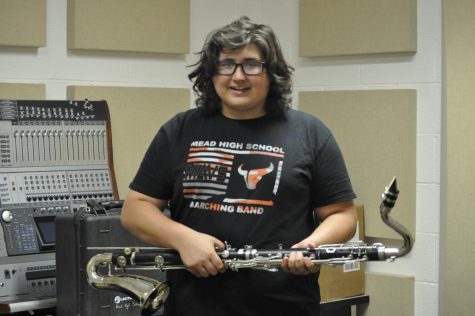
Gretzky enjoys working on cars and computers and playing the clarinet. He is involved in marching band and wrestling. He is looking forward to making knowledge of events inside and outside of school more accessible to students.
You can contact him at [email protected]





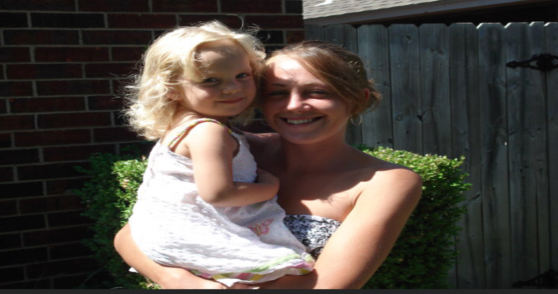
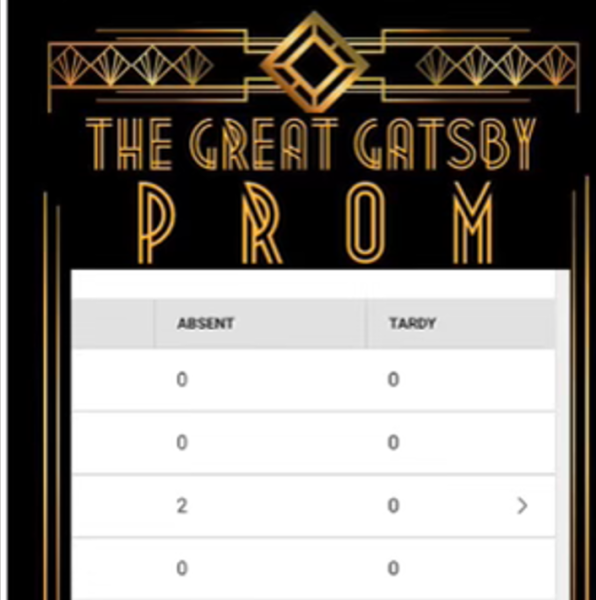



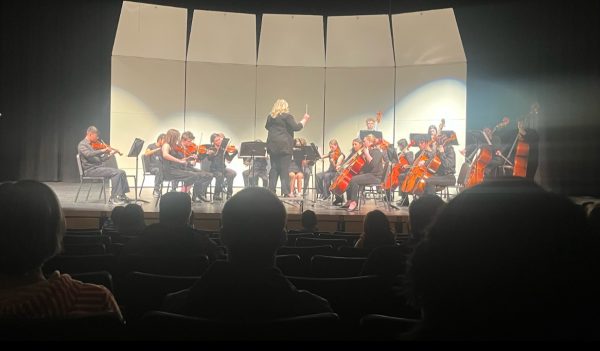





Steve Parsons • Mar 10, 2019 at 4:01 pm
Obviously I’m really late getting to this piece, but let me again commend you on some great writing and argument.
Full disclosure, To Kill A Mockingbird is my favorite book.
That said, I am with you in completely disagreeing with Chase’s and Franks’ arguments. We shouldn’t toss out great books because they were written in a certain historical context. As teachers, we should facilitate students (not children) contextualizing stories and understand the lens through which authors/narrators tell their stories. Students are smart enough to understand that and TKAM shouldn’t be held to a 21st century standard for inclusiveness.
Nichole Rue • Nov 16, 2018 at 6:59 am
I want to start by saying what everyone else has said: you should be very proud of this, Gretzky.
I, also, am left with a great deal of things to think about. I agree with you that there is much to be learned from this book and others in the canon, but I always struggle with what Zac Chase does in that I hate stories of the white savior. There are so many books and movies where minorities are saved by a white person, and I am left thinking, would my students benefit from a different kind of story?
Nicole Bortz • Nov 15, 2018 at 1:52 pm
Great job Gretzky! This was very well thought out and written.
Thank you for advocating for books! In this age of technology, it is important that we recognize how important books still are and the written word is one of the best ways to remember and learn our history, and be able to have a voice.
Well done!
Jamie Hedlun • Nov 2, 2018 at 3:36 pm
Good job, Gretzky. You should be proud of this piece of writing and using it as an avenue of sharing your voice.
Mrs. Warren • Nov 2, 2018 at 8:14 am
What a well thought out and nuanced response. It causes me to wonder: Is the greater crime the censorship of books or the force-feeding of books that “experts” think must be taught? I don’t know the answer.
I will admit to thinking that the book should be taught for many of the same reasons that you have detailed. Like you, I think the book is a shining example of thinking contextually about the period of time it was written. Thank you for such a wonderful piece.
Shelby Lewis • Nov 1, 2018 at 10:12 am
I honestly have no words for this other than that this was so well written. Your thought and planning was quite obvious throughout the entire thing. I am blown away by this. Fantastic job!